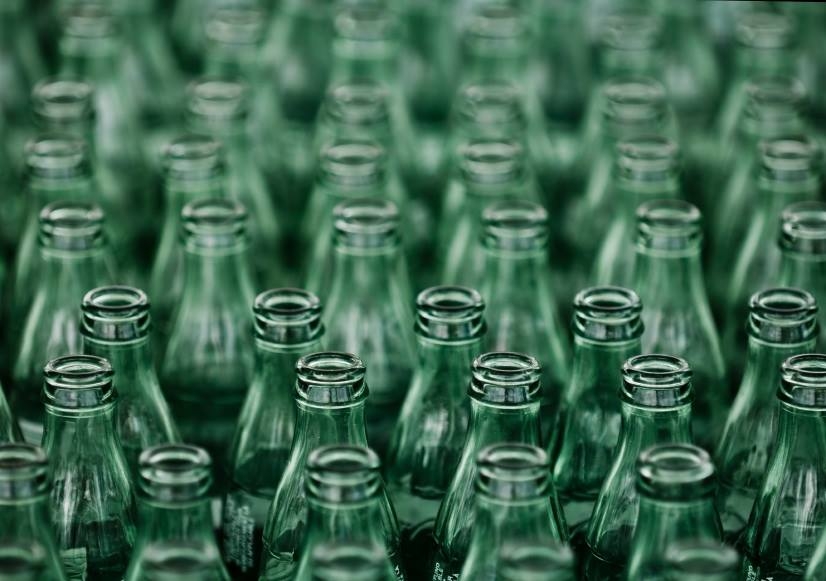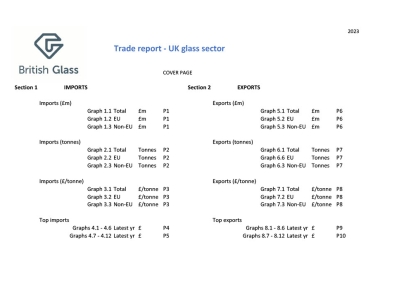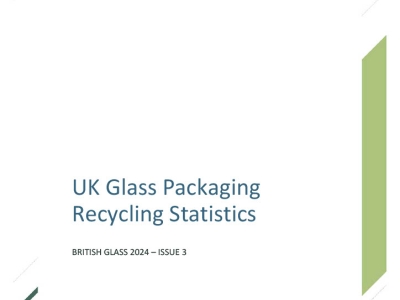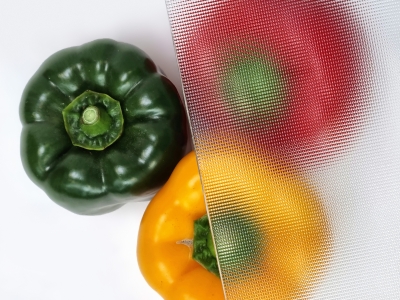
- The UK’s glass manufacturers today hit out at Scottish plans for recycling with a deposit return at its heart
- Increased collection costs for retailers and brand owners will prompt a switch to more plastic packaging
- Scottish drinks sector will be hit and could mean plant closures and job lsses
- Glass is 100% recyclable, plastic is not
- Experts say current glass collection rate will be cut from 67% to 60%
Further to the recent announcement by the Scottish Government (9th May) on plans to include glass packaging in a Deposit Return Scheme (DRS), representatives from the £1.6bn UK glass manufacturing sector have expressed disappointment that industry and retailer views have been ignored.
This follows recent statements from Iceland, The Scottish Retail Consortium and The Scottish Beer and Pub Association who have all argued that glass packaging should be excluded from the design of a DRS scheme to avoid estimated running costs of £50 million(i).
A DRS aims to generate more used packaging for recycling, but experts argue that including glass in a DRS would reduce the current UK glass collection rate of 67% (ii). Furthermore, the increased costs for including glass in a DRS to retailers and brand owners, will encourage a switch from glass to alternative packaging materials - resulting in even more plastic on the market.
Members of the glass manufacturing sector say they are committed to maximising the use of recycledand glass (cullet) in their manufacturing process and support any initiatives to increase glass recycling. Some industry furnaces already run on 90% recycled cullet, which saves raw material, reduces energy and CO2 emissions. The UK glass sector has proposed ambitious targets for glass collection of 85% by 2030, but says this is only achievable under an alternative Extended Producer Responsibility (EPR) scheme.
More details of the rationale behind the glass industry’s concerns to the proposed DRS are as follows:
A DRS including glass will decrease the glass recycling rate
- Glass collection rates across the UK are currently 67% for all glass packaging (bottles and jars). The proposed DRS scheme projects a collection rate of 60% on glass bottles only.
- Consumers currently recycle all glass containers together. Adding a DRS to the existing collection infrastructure places an additional burden on households and retailers to sort different products packed in glass via different channels and does not consider the practicalities of glass being bulkier, heavier and requiring more careful handling.
- It also undermines the viability of the existing glass collection system which could be put at risk. Many glass containers will not be included in the DRS, (glass jars for food, oil, sauce and vinegar bottles) and could potentially end up in landfill.
The cost to include Glass in a DRS is considerable and will lead to unintended consequences - specifically a switch to plastic packaging and job losses in the glass manufacturing sector
- Studies by Anthesis (iii) indicate that the net cost of including glass in a DRS are several times higher than for other materials due to glass requiring increased handling and a greater number of collection points. The net additional cost of including glass in a DRS for Scotland is estimated at £50 million, a cost that will ultimately be borne by industry and the shopper.
- This DRS cost burden on glass packaging will impact brand-owners’ decision making and encourage a switch from glass to plastic packaging which is cheaper to include in a DRS. This outcome has already been evidenced in countries like Finland and Germany, when deposit schemes were introduced.
- This will adversely impact the vibrant Scottish drinks sector, a key generator of value in Scotland. Glass manufacturers will be forced to review investment plans in Scotland and the rest of the UK, leading to plant closures and job losses.
A DRS for Scotland including glass does not support a Circular Economy
- Rather than ‘safeguarding our planet for future generations’, including glass in a DRS will compound current waste problems by encouraging brands to move to plastic packaging. Glass is 100% and infinitely recyclable in a circular economy model. Plastic is not.
- A vision for a ‘closed material loop’ for glass in Scotland, as per the ambition of the Scottish Government, is not realistic or achievable, given the high volume of goods supplied into and out of the region. High volumes of empty glass packaging are transported from England into Scotland for filling every year. Furthermore, 90% of all spirits produced in Scotland are exported overseas.
The industry accepts that for some materials a deposit return scheme will work well and help the Scottish Government achieve its objectives of addressing the litter problem and increasing recycling but including glass packaging in a DRS will unintentionally lead to increasing amounts of plastic packaging.
Products packaged in glass are not typically consumed ‘on the go’ and therefore do not represent a litter problem. A survey conducted by Incpen in Scotland in 2016 identified only 0,1% of the overall litter as consisting of glass bottles for alcohol(iv). The surveyed litter sample did not contain any other glass items. Therefore, the inclusion of glass in a DRS will not reduce litter, but instead put an undue administrative and cost burden on the value chain and finally the consumer.
Industry representatives also question why HDPE bottles, beverage cartons and many other types of packaging have been excluded from the planned DRS scheme, on the basis that they are not consumed outside the home and benefit from an existing collection infrastructure. The same statements are also applicable to glass packaging, furthermore taking HDPE bottles and glass alone both materials represent a similar quantity of material in the waste stream (as calculated on a per unit basis).
The vision of UK Glass Manufacturers, for a way forward which will increase the recycling rate of glass and delivers a true circular economy, is to support the proposed EPR scheme planned for 2021 under the EU Packaging Waste Directive. EPR-based collection and recycling systems across Europe have proven to deliver the highest recycling rates, with no deposit, and - importantly for consumers - lower cost.
For more information visit the Recycle More page.
References
- Environmental Consultant


